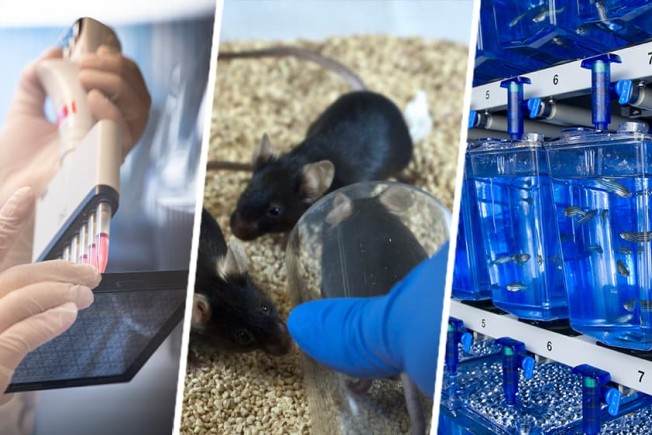Our mission

The NC3Rs works to pioneer better science through advancing the 3Rs in research.
Our mission is to:
- Support the discovery and adoption of predictive, reproducible and cost-effective alternatives to the use of animals.
- Improve standards where animal use is necessary, optimising model selection and study design and minimising suffering as far as possible.
- Promote the importance of the 3Rs across the scientific community, nationally and internationally, by providing training and embedding the 3Rs in policy, practice and regulations.
Our policy on animal research
The NC3Rs primary mission is to accelerate the replacement, reduction and refinement of the use of animals in research. As part of delivering this mission, the NC3Rs funds research which may involve the use of animals, for example to develop new imaging modalities and approaches that help reduce the use of animals or to establish new methods for assessing laboratory animal welfare.
The NC3Rs only supports the use of animals where the justification is scientifically compelling, where the experimental plans are robust and will provide meaningful results which are reported in line with the ARRIVE guidelines, and where appropriate measures are taken to minimise any suffering. Animal research supported by the NC3Rs must comply with the principles set out in Responsibility in the use of animals in bioscience research (PDF) and other guidance including specific terms and conditions associated with grant awards.
Wherever possible we ensure that animals are not used specifically for NC3Rs projects but instead "piggy-back" onto existing ongoing studies to minimise the use of animals. For our projects to develop tools and approaches that replace the use of animals it may be necessary to test these against animal models for comparative purposes. In the majority of these cases, historic animal data are used.
